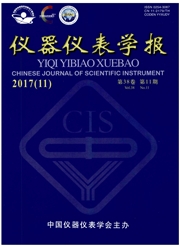

 中文摘要:
中文摘要:
母线电压的稳定控制是两级式光伏逆变器长期、稳定运行的前提。目前常用于单相逆变器中点电位平衡控制的方法有:增加分压电容容值法和并联功率电阻法等,但这些方法并不能彻底消除母线电容偏压,并且增加了电路复杂性、降低了系统效率。提出了一种通过调节并网电流的大小来控制母线电压稳定的方法,分别对高、低端母线电压进行采样,将采样值与期望值进行比较,将误差送到控制电路,并通过各自的母线控制器实现母线控制算法使其电压达到稳定状态。对基于这种控制算法的3kw半桥光伏并网逆变器进行了针对性测试,测试结果证明了所提出的新型控制策略准确可行,适用于两级式光伏并网逆变器。
 英文摘要:
英文摘要:
The stability control of bus voltage is the premise which guarantees the two-stage photovoltaic inverter to operate continuously and in a stable condition. Currently, increasing the capacitance of the partial capacitor and adding a parallel power resistance are common ways in the midpoint potential balance control of single-phase inverter. However, none of them can completely eliminate the issue of bus capacitance deviation. Besides, it makes the circuit more complicated and reduces the efficiency of the system. A novel method for stability control of the bus voltage by adjusting the amplitude of the grid-connected current is presented. In this method, both the high-end and the low-end bus voltage are sampled respectively, the sampling error is the difference between the measured value and the expected value, then the error is sent to the control circuit. The bus voltage control algorithm, called dual-loop control, is implemented by respective controller so that the voltage reaches a steady state and is compared with single-loop control. Many targeted tests have been performed on the 3 kW half-bridge grid-connected photovoltaic inverter based on this algorithm. Experimental results demonstrate that the proposed control strategy is accurate and feasible for two-stage photovoltaic grid-connected inverter.
 同期刊论文项目
同期刊论文项目
 同项目期刊论文
同项目期刊论文
 Spatial and Time Patterns Extraction of Eddy Current Pulsed Thermography Using Blind Source Separati
Spatial and Time Patterns Extraction of Eddy Current Pulsed Thermography Using Blind Source Separati A Comparative Study of Principal Component Analysis and Independent Component Analysis in Eddy Curre
A Comparative Study of Principal Component Analysis and Independent Component Analysis in Eddy Curre Improvement of the Grid-Connect Current Quality Using Novel PI Controller for Photovoltaic inverters
Improvement of the Grid-Connect Current Quality Using Novel PI Controller for Photovoltaic inverters Methods of Handling the Tolerance and Test-Point Selection Problem for Analog-Circuit Fault Diagnosi
Methods of Handling the Tolerance and Test-Point Selection Problem for Analog-Circuit Fault Diagnosi An improved autoregressive model by particle swarm optimization for prognostics of lithium-ion batte
An improved autoregressive model by particle swarm optimization for prognostics of lithium-ion batte Application of Heuristic Graph Search to Test-Point Selection for Analog Fault Dictionary Techniques
Application of Heuristic Graph Search to Test-Point Selection for Analog Fault Dictionary Techniques 期刊信息
期刊信息
